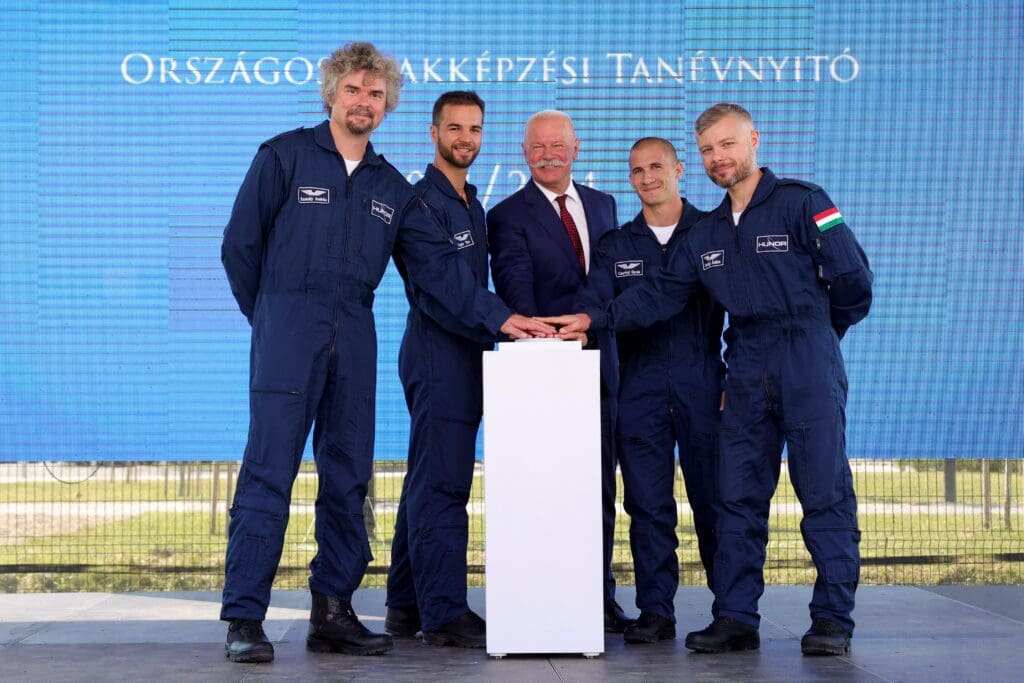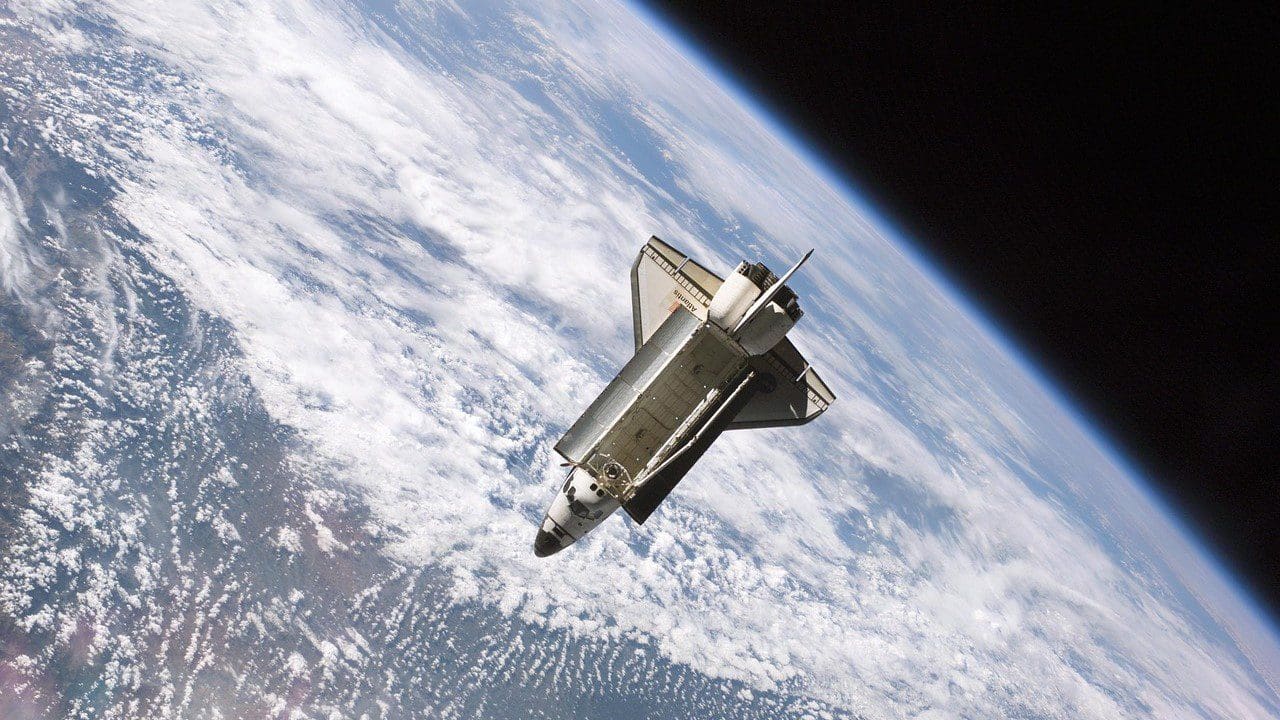Due to a mentality that lingers on from the 20th century, space exploration is still being widely viewed as an endeavour that is immensely resource consuming, non-beneficial, accessible to superpowers only and completely detached from everyday life. It continues to appear in the minds of many as the futile dream of a few sci-fi enthusiasts.
Contrary to this widespread perception,
space exploration has huge profit potential and concrete benefits for all,
including small countries like Hungary that can contribute to humanity’s space effort just like much larger and more powerful states.
Hungary in fact is a member of the European Space Agency, which nowadays requires its members to develop their own space programmes before being admitted to the organization. Hence the need for the government to reflect upon the country’s role in global space exploration, which culminated in the 2021 release of Hungary’s Hungary’s Space Strategy document. Although it’s been in existence for two years, not much has been written about it, so the present analysis fills a gap. As the document itself states, one of the key methods of achieving Hungarian space ambitions involves elevating public awareness regarding the significance of space exploration.
The authors of the Space Strategy of Hungary start off by addressing the widespread misconceptions and myths pertaining to space exploration that we mentioned above. According to the document:
‘Public opinion still identifies the opportunities offered by space economy with rocket technology using enormous material resources, space station operations and reaching other planets, while space industry sets far more material and intellectual resources in motion, and opens up new, directly accessible growth paths to a much wider economic sector than the results appearing in the media.’
While all the long-term and grandiose projects that the text refers to are also among the ambitions of many space actors all around the world, including both states and businessmen, there are many short and medium-term goals identified in the report that can be achieved with much less effort, and very profitably so. Based on the European Space Agency’s calculations,
each euro allocated to the space sector gives an impressive six-fold return.
More than that, space economy serves as a catalyst, spurring innovation and allowing other industries to benefit from it—just think of the Internet, GPS technology, the banking sector or medicine (e.g., experiments in microgravity that can revolutionize the pharmaceutical industry), all of which are now unimaginable without the beyond-the-atmosphere activities.

In the era of climate change, monitoring climate from above the atmosphere is also crucial to manage its consequences and prevent catastrophes. Besides, the prospects of celestial objects’ mining are becoming increasingly more real, and some European countries, including the V4 member Czech Republic, intend to devote increasing attention to this aspect of space exploration in the near future. Whereas Hungary might not have the capacity to execute large-scale missions on its own, it is possible, states the strategic plan, to benefit from space by participating in global space commerce supply chains, as well as collaborating internationally, including in the framework of Euro-Atlantic alliances.
Defence concerns might in turn push Hungary to develop its own space infrastructure over time,
in order to acquire bigger level of space sovereignty.
Recognizing the outlined benefits, the Space Strategy of Hungary states that it is possible for Hungary to participate in the space sector, in order to achieve the following strategic goals:
- Utilization of the potential in the space sector to stimulate innovation and sustainable growth in the national economy as a whole—basically, channelling the already existing solid resource base present in Hungary to the space sector.
- Strengthening Hungary’s international role, broadening its network, and creating an organizational framework for coordination—space economy is becoming more globalized, and especially for smaller nations like Hungary, international cooperation is crucial to achieve results in the realm of space activities. In addition, it also follows from the multifaceted nature of space that it can be used in the defence context, which means more prospects of cooperation within NATO.
- For the prosperity of the space sector, the development of knowledge-based social and economic conditions and an infrastructural background is essential—this in turn means establishing the yet non-existing elements of infrastructure in order to improve Hungary’s position in the sphere of space activity.
What is important to understand is that the Space Strategy of Hungary is not just a policy statement—all the broader goals are broken down to smaller segments and concrete measures proposed. Moreover, 16 short-term measures to achieve the key strategic goals are introduced and thoroughly explained, showcasing incredible attention to detail and level of elaboration. Among them are such measures as updating Hungarian legislation, ensuring more rapid dissemination of data between different agencies to allow for interdisciplinary contribution, introducing space-related educational programmes, as well as launching flagship projects like the Hungarian research astronaut mission.
Furthermore, the strategic document serves as an analysis of Hungary’s current strengths
that could be used to implement the strategy, and highlights specific areas in need of improvement.
Among the positive signs Hungary is showing today, the authors of the strategy identify the rise in budget expenditures allocated to space research (from 4.5 billion HUF in 2019 to 10 billion HUF in 2021), the relatively developed information and communication technology sector, and the high level of scientific expertise that is spanning more than half a century. Research institutions such as Eötvös Loránd University (ELTE), the Eötvös Loránd Research Network (ELKH), the University of Public Service (UPS), the Budapest University of Technology and Economics (BME), and Óbuda University already possess bases for the space research plans outlined in the strategy. In addition, regional higher educational entities such as the universities of Miskolc and Debrecen also have solid foundations allowing space research activities.
However, that is not to say that there are no areas where there is need for improvement, and the strategy identifies those as well. Among them, bureaucratic difficulties are pointed out as something that hinders information sharing, crucial in the fundamentally interdisciplinary task of space exploration. The lack of financial resources holds back small and medium-sized companies from participating in international manufacturing projects—although, perhaps surprisingly to some,
there are already quite a few space business companies in Hungary,
as identified by the Hungarian Space Kaleidoscope report. Also, despite the solid base that Hungary possesses with regards to space exploration, the number of researchers engaged in the space sector is still miniscule. Finally, there are certain issues pertaining to the lack of long-term space projects, although this problem has been partially compensated by the publication of the Space Strategy of Hungary itself.
All in all, it is a fact that 21st century economy is unimaginable without the space sector. According to Morgan Stanley’s report, the global revenue of the world’s space industry will rise from the USD 350 billion in 2020 to over USD 1 trillion billion by 2040, becoming one of the world’s fastest growing industries. Fully aware of that, the Space Strategy of Hungary rightly states that space research should be a priority area for the government, for the sake of improving the overall quality of life in Hungary and increasing the country’s competitiveness on the global arena.








